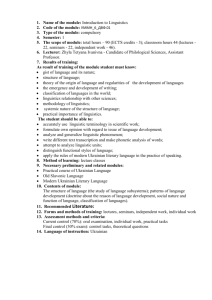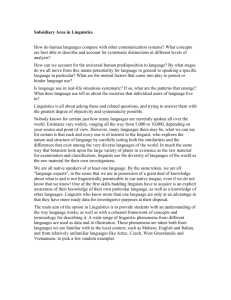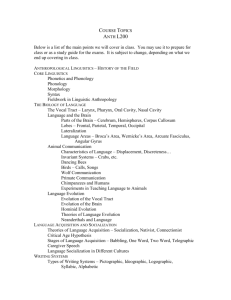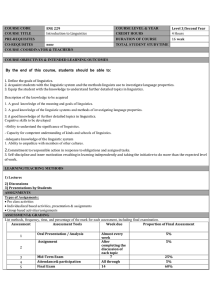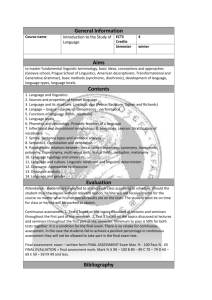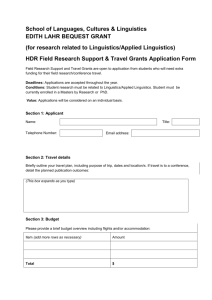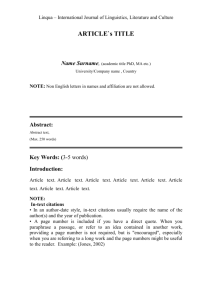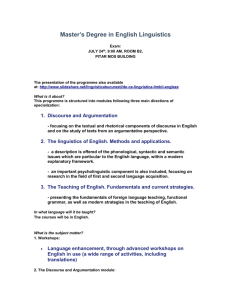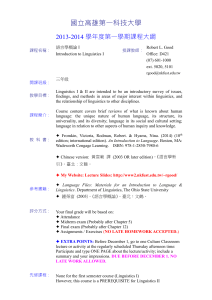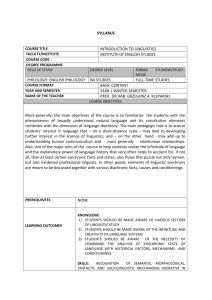Jennimaria Palomaki Teaching Portfolio Teaching Philosophy My
advertisement
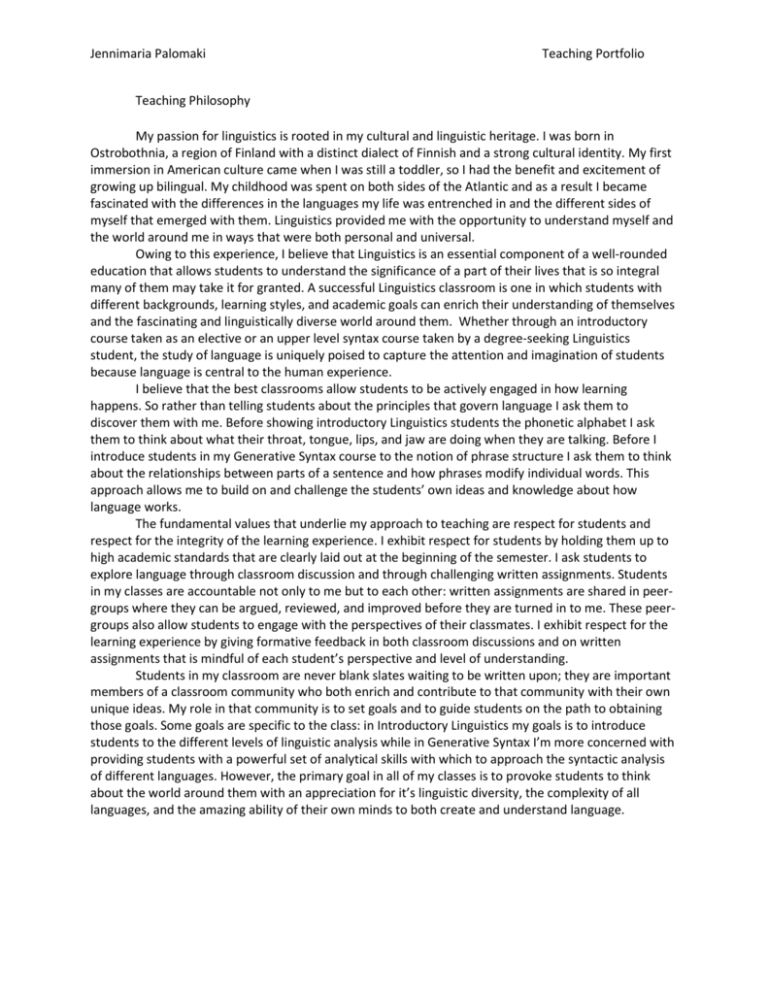
Jennimaria Palomaki Teaching Portfolio Teaching Philosophy My passion for linguistics is rooted in my cultural and linguistic heritage. I was born in Ostrobothnia, a region of Finland with a distinct dialect of Finnish and a strong cultural identity. My first immersion in American culture came when I was still a toddler, so I had the benefit and excitement of growing up bilingual. My childhood was spent on both sides of the Atlantic and as a result I became fascinated with the differences in the languages my life was entrenched in and the different sides of myself that emerged with them. Linguistics provided me with the opportunity to understand myself and the world around me in ways that were both personal and universal. Owing to this experience, I believe that Linguistics is an essential component of a well-rounded education that allows students to understand the significance of a part of their lives that is so integral many of them may take it for granted. A successful Linguistics classroom is one in which students with different backgrounds, learning styles, and academic goals can enrich their understanding of themselves and the fascinating and linguistically diverse world around them. Whether through an introductory course taken as an elective or an upper level syntax course taken by a degree-seeking Linguistics student, the study of language is uniquely poised to capture the attention and imagination of students because language is central to the human experience. I believe that the best classrooms allow students to be actively engaged in how learning happens. So rather than telling students about the principles that govern language I ask them to discover them with me. Before showing introductory Linguistics students the phonetic alphabet I ask them to think about what their throat, tongue, lips, and jaw are doing when they are talking. Before I introduce students in my Generative Syntax course to the notion of phrase structure I ask them to think about the relationships between parts of a sentence and how phrases modify individual words. This approach allows me to build on and challenge the students’ own ideas and knowledge about how language works. The fundamental values that underlie my approach to teaching are respect for students and respect for the integrity of the learning experience. I exhibit respect for students by holding them up to high academic standards that are clearly laid out at the beginning of the semester. I ask students to explore language through classroom discussion and through challenging written assignments. Students in my classes are accountable not only to me but to each other: written assignments are shared in peergroups where they can be argued, reviewed, and improved before they are turned in to me. These peergroups also allow students to engage with the perspectives of their classmates. I exhibit respect for the learning experience by giving formative feedback in both classroom discussions and on written assignments that is mindful of each student’s perspective and level of understanding. Students in my classroom are never blank slates waiting to be written upon; they are important members of a classroom community who both enrich and contribute to that community with their own unique ideas. My role in that community is to set goals and to guide students on the path to obtaining those goals. Some goals are specific to the class: in Introductory Linguistics my goals is to introduce students to the different levels of linguistic analysis while in Generative Syntax I’m more concerned with providing students with a powerful set of analytical skills with which to approach the syntactic analysis of different languages. However, the primary goal in all of my classes is to provoke students to think about the world around them with an appreciation for it’s linguistic diversity, the complexity of all languages, and the amazing ability of their own minds to both create and understand language.

